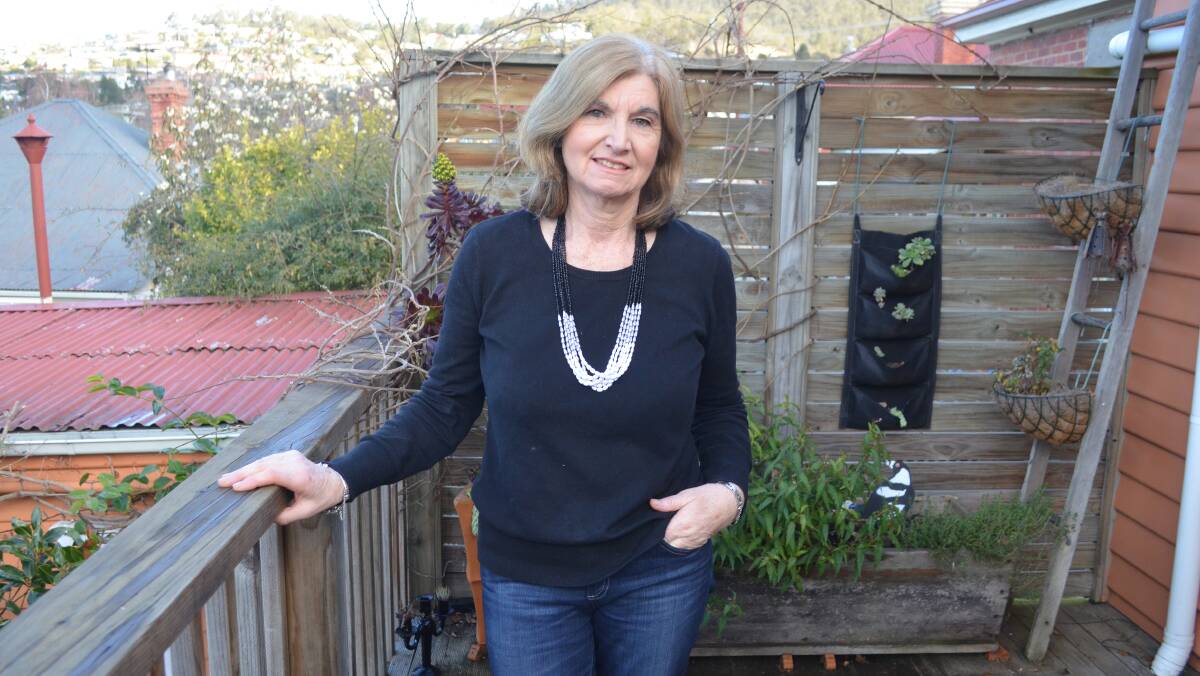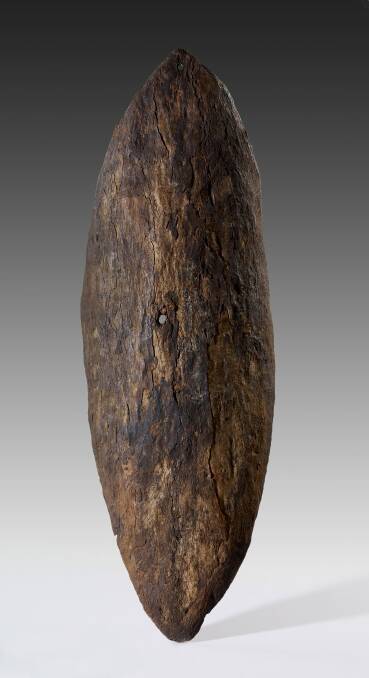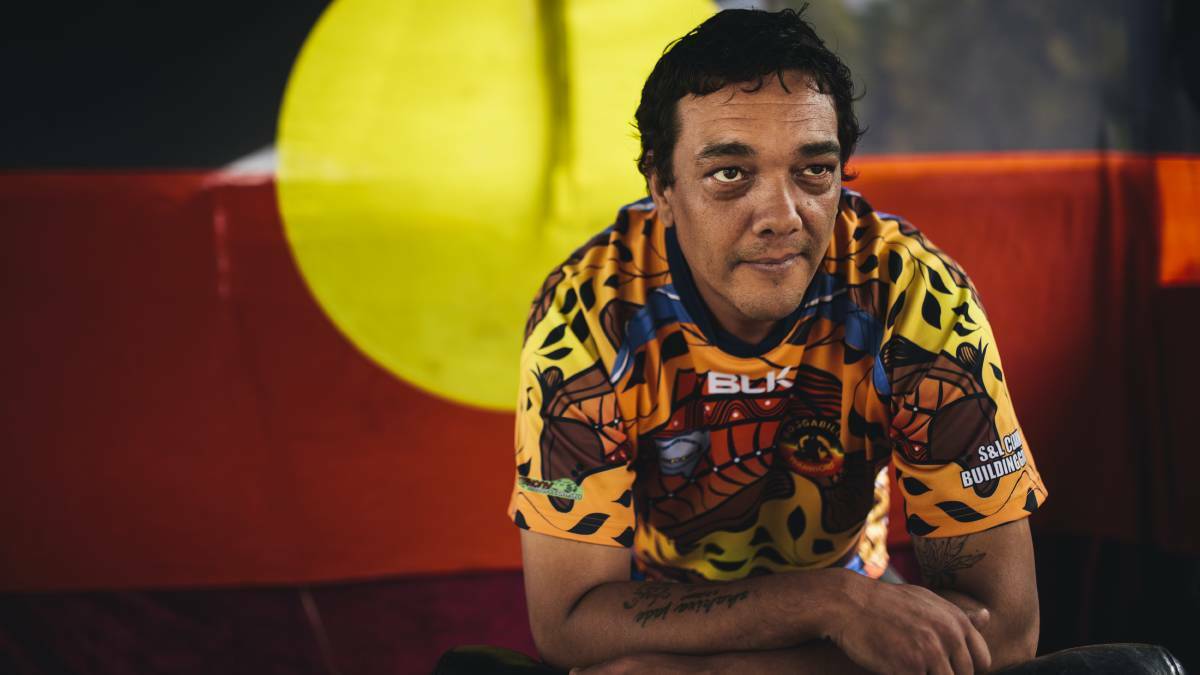The internet has brought together the descendants of two people present when the British Royal Navy research vessel, the HMS Endeavour, docked in what is now called Botany Bay in April 1770.
Subscribe now for unlimited access.
$0/
(min cost $0)
or signup to continue reading
West Hobart’s Sheila Allen, a descendant of Sir Joseph Banks’ servant James Roberts who was just 16 years old at the time, stumbled across Bermagui man Rodney Kelly’s quest to repatriate artefacts taken on that fateful day while on social media.

“I really felt sorry that Rodney was having such a difficult time and had so many barriers to overcome, I felt it was an injustice,” the 62-year-old said.

Ms Allen contacted Mr Kelly, advising him Mr Roberts kept a diary of the voyage, which may have crucial information in helping the repatriation process of the Gweagal shield and a large number of spears kept in British museums.
“My personal opinion about the British museums is that they should aim to repatriate, in a timely manner, all stolen or misappropriated exhibits on application from descendants, organisations or governments once their provenance has been proven"
“The connection has long been known in our family and our dad, and most of his ancestors, were born in the same tiny village or very close to where James Roberts was born,” she said.
“One story in our family is that my grandmother was once so angry with my grandfather she burned some sort of memorabilia given to James [Cook] by Banks commemorating their journey.”
She said reading the journal was a moving experience.
“I remember getting goose bumps thinking that we were standing very close to the place James was writing about over 200 years ago,” she said.
“I was stunned to find out its importance and surprised it wasn't better known because the diary is remarkable.
“When we viewed it, it hadn't been transcribed and was difficult to decipher.”
Recently diagnosed with chronic myelogenous leukaemia, Ms Allen has become a vehement supporter of Mr Kelly’s lobbying for the return of artefacts once held by his descendant Cooman, of the Gweagal clan.
“My personal opinion about the British museums is that they should aim to repatriate, in a timely manner, all stolen or misappropriated exhibits on application from descendants, organisations or governments once their provenance has been proven,” she said.
“I feel that the colonisation of Australia was inevitable given that it was a time of great exploration by many countries, but that does not mean for one second I agree with the manner with which it was done.”
She said mainstream acknowledgment of what happened in 1770 will help the nation heal.
“I feel white Australians still have a long way to go before the gap is anywhere near closing, but I do believe there is growing goodwill by individuals on both sides to achieve this,” she said.
“The patriarchal, institutional and ingrained culture of racism makes this a difficult process.”

Ms Allen said Banks was a keen educator from an extremely wealthy family who helped her ancestor out of poverty, employing him as his steward.
“Banks was a very forward thinking man for his time,” she said.
“He ensured all his tenants at Revesby Village were taught to read and write.
“If you read the original diary you could not fail to be amazed that a young, poor, farm boy could write so beautifully.”
Mr Kelly said the unexpected Facebook message from Ms Allen came as an “amazing” shock.
“To have that connection out of the blue on Facebook was just amazing, you never believe it would happen,” he said.
“We both have a link to that day so it would be amazing to go to Tasmania and meet her and talk about history together.
“Her message made me feel that I am doing the right thing and the spirits are helping me out.”
NSW Greens MP David Shoebridge revealed to Mr Kelly in Tathra on Saturday he now has the support of NSW Minister for Aboriginal Affairs Leslie Williams in passing a motion in parliament next week acknowledging the Gweagal people as the rightful and lawful owners of the artefacts.
“It is overwhelming,” Mr Kelly said.
“I don’t believe that since the 28th of March it has got this far.”
Mr Shoebridge has also written to the University of Cambridge Museum of Archaeology and Anthropology, where a number of spears are also held, to start negotiations on the return of artefacts.
Mr Kelly has also been speaking with the museum’s senior curator ahead of his lecture to students and curators at the university during his planned visit to the UK in October where he will also meet with the British Museum.
Human rights and social justice not for profit legal service, the National Justice Project, is also advocating for the artefacts repatriation, and Mr Kelly said an announcement on their legal approach is expected any day now.
“I think the spears will be coming home after my visit,” Mr Kelly said.
RELATED COVERAGE:


